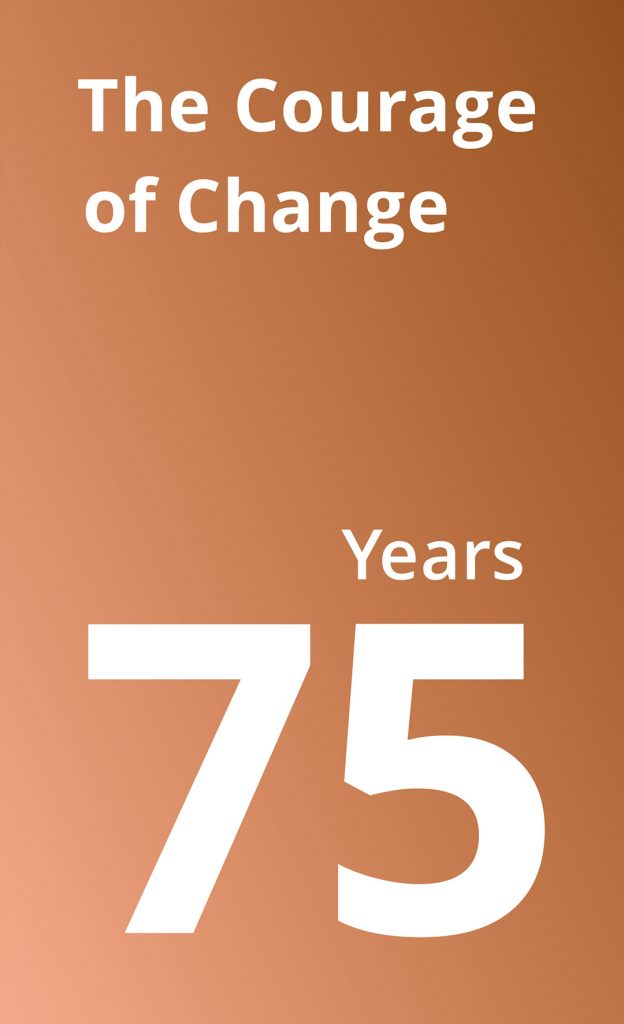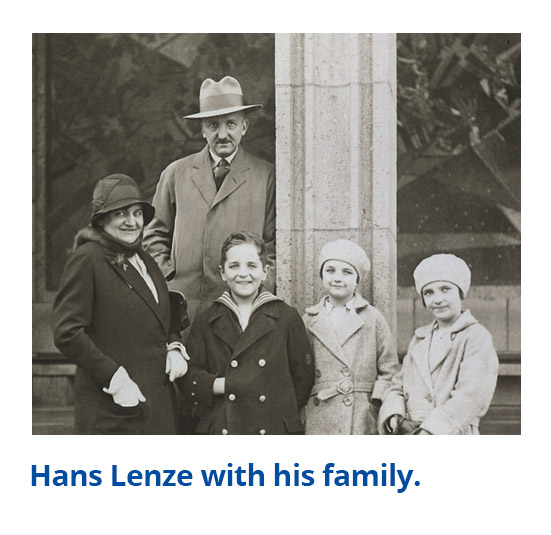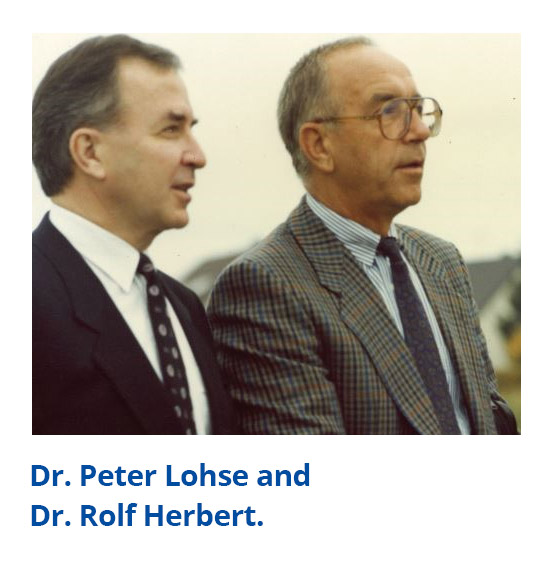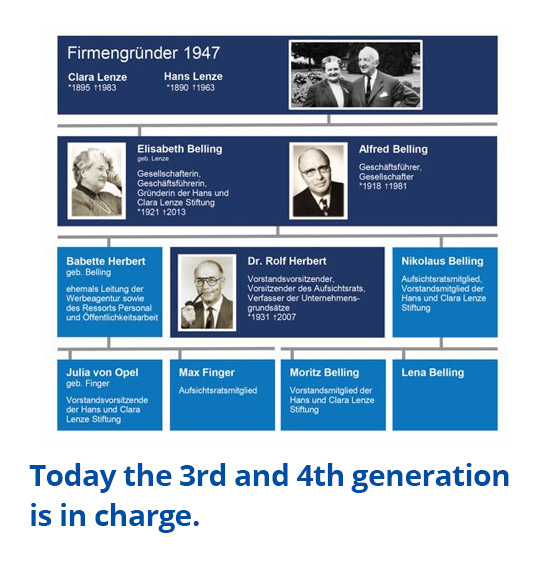

Lenze as a family company

The generational change from founder Hans Lenze to his son-in-law Alfred Belling goes according to plan in 1963. When Alfred Belling unexpectedly dies in 1981, his widow – Elisabeth, the daughter of Hans Lenze – takes responsibility for the company. She brings in external people to support her management team because her children Hans, Nikolaus and Babette are still only young.
They take part in the operation of the company later for a short time, but then go their own ways. Senior partner Elisabeth Belling remains an important personality and a moral authority in the company until her death in 2013.
When Dr. Rolf Herbert, the husband of Babette Belling, takes charge of the company in the 1980s, Lenze again has a member of the family in the top position. He gives the company structure, thus paving the way for the smooth transition from an owner-managed company to a manager-run family business.


From 1995, for the first time, the operational responsibility for the company is no longer in the hands of a family member.
The owning family, however, still exercises decisive influence on Lenze’s development to this day through the family council – now in the third and fourth generation. The family takes care to ensure that the special character of Lenze as a family business is maintained. This includes a strong sense of responsibility towards employees, customers and business partners. As a family company, Lenze is less profit-oriented than businesses listed on the stock exchange and it believes in long-term perspectives and sustainable development. In recent years, for example, the owners have made substantial investments in technological development and enabled the company to take big steps forward in automation, the company’s core business.
It remains to be seen whether representatives of the fourth or later generations of the family will once more stand at Lenze’s helm. The family has stipulated that decisions will be made only on the basis of qualifications: family members must meet requirements that are at least as high as those for external applicants.
But no matter who is at the top, the family is determined that their company will be run in accordance with traditional values and ideas. This means placing great trust in their executives on the board, who put the company’s values into operational practice.
They are given the freedom needed to take entrepreneurial action and to make decisions over the long term. But in the end, what counts is this: “Executives come and go, but the family will always be here.” Relinquishing responsibility for the company is out of the question for the family.
